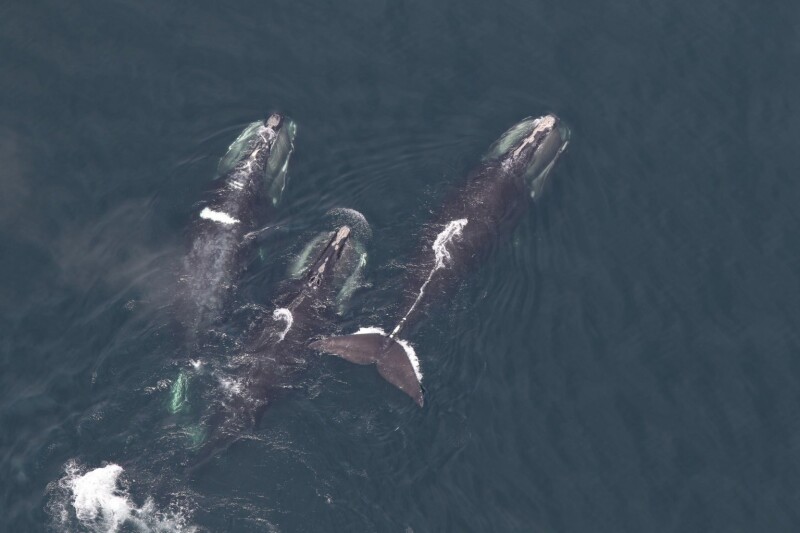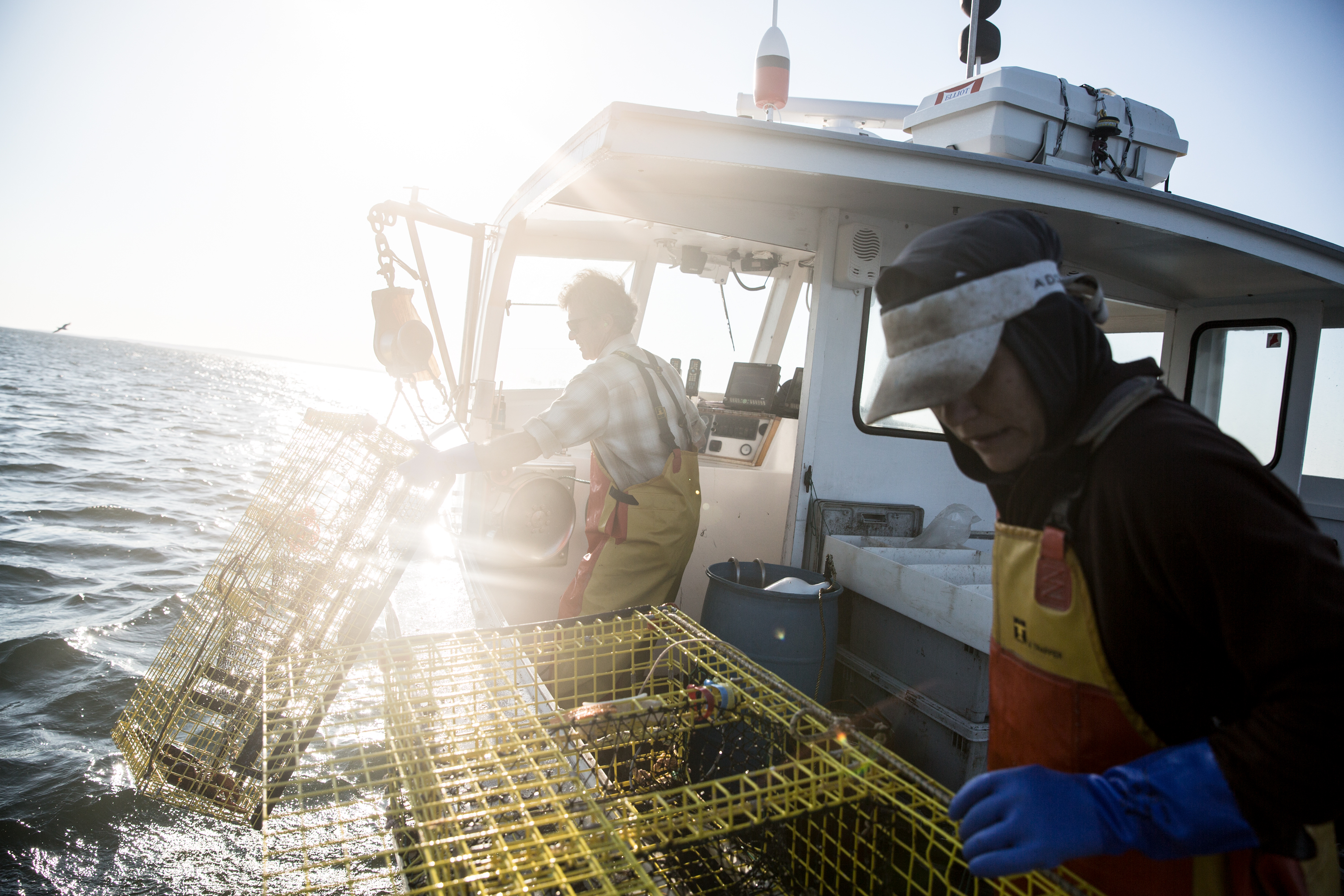The latest rules to reduce right whale deaths from lobster and crab gear still don’t go far enough in reducing potential mortality, according to a federal judge who has called for a new hearing to decide on remedies.
In an opinion issued Friday in Washington, D.C., U.S. District Court Judge James E. Boasberg ruled in favor of a key complaint from environmental groups who want the National Marine Fisheries Service to do more to reduce whale entanglements with vertical lines used in East Coast trap fisheries.
Boasberg said he would not take the step of ordering a fishery closure.
“The Court’s findings at this juncture do not dictate that it must immediately shutter the American lobster fishery; indeed, it is cognizant of what a weighty blow that would inflict,” Boasberg wrote in his opinion. He directed NMFS, the environmental groups and lobstermen’s advocates to submit new briefing papers on what potential remedies the court could order.
Now an extremely endangered species – with a population that plunged from around 481 animals in 2011 to an estimated 345 – the north Atlantic right whale is at risk from ship strikes and fishing gear entanglement. The gear issue has been subject to litigation in Boasberg’s court since 2018.
Under an earlier court order from Boasberg, NMFS developed a final rule in 2021 for protecting whales, based on the agency’s revised biological opinion (or ‘BiOp’) issued that year. Provisions of the rule include seasonal closed areas, changes to lobster and crab gear, and other measures.
A new complaint brought by the Center for Biological Diversity, Conservation Law Foundation and Defenders of Wildlife alleged that NMFS’ own projections show that the right whale population would still lose animals to gear entanglement at a rate that would continue the path to extinction.
In a 43-page opinion peppered with maritime references, Boasberg recounts how “this case has washed up on this Court’s shores several times.” The 2021 BiOp and final rule were supposed to resolve the issue, but the environmental groups came back with a complaint enumerating a half-dozen shortfalls they see in the rule.
“So how does the ship’s log now read?” Boasberg wrote in his opinion. “As explained in detail above, the crux of the problem is that the 2021 BiOp projects that in the coming years the American lobster fishery will continue to potentially kill and seriously injure North Atlantic right whales at over three times the sustainable rate.”
“This is expected to occur even after the implementation of the 2021 Final Rule amending the ALWTRP (Atlantic Large Whale Take Reduction Plan) and even though zero lethal take is authorized,” Boasberg wrote.
Boasberg held the 2021 BiOp and final rule invalid. He ordered NMFS and other parties in the case to submit a joint proposed briefing schedule on possible next steps by July 20 and scheduled a status hearing for July 22.
“Cognizant of the potential effects of this ruling on the lobster industry — and on the economies of Maine and Massachusetts — and given the highly complex statutory and regulatory environment that this case involves, the Court orders no remedy here,” the judge wrote. “Instead, it will offer the parties the opportunity for further briefing to articulate alternatives the Court may select.”
The plaintiff environmental groups, who have long pushed for more dramatic action from the government, praised Boasberg’s latest opinion.
“This is a huge victory in the fight to save these profoundly endangered whales from extinction,” said Kristen Monsell, oceans legal director at the Center for Biological Diversity. “Lobster gear is a deadly threat to right whales, and the courts are telling the federal government to quit stalling and start taking real action.”
The Maine Lobstermen’s Association – named as a defendant along with the Department of Commerce and NMFS – called the ruling “a mixed bag” and took heart in Boasberg’s intention to seek remedies short of shutting the fishery.
Patrice McCarron, the MLA executive director, said Boasberg’s recognition of the economic risks is encouraging.
“We are still reviewing the Court’s opinion with our lawyers, but we are heartened that the Court recognizes the great importance of Maine’s lobstering heritage and appreciates the potential and unnecessary harm that could be imposed on the men and women who work so hard to make our industry thrive.”
The lobstermen's association also noted the judge’s acknowledgement that NMFS could find “that projected take [of endangered whales] is in fact lower than originally estimated.”
“This is precisely why MLA filed its own lawsuit against NMFS, which remains pending,” the association said. “MLA’s case demonstrates that the government’s order for a 98 percent reduction in the lobster fishery’s minimal risk to whales rests solely on hypothetical, inflated estimates unsupported by the agency’s own data. These are issues that MLA believes the court must direct the agency to examine rigorously.”








